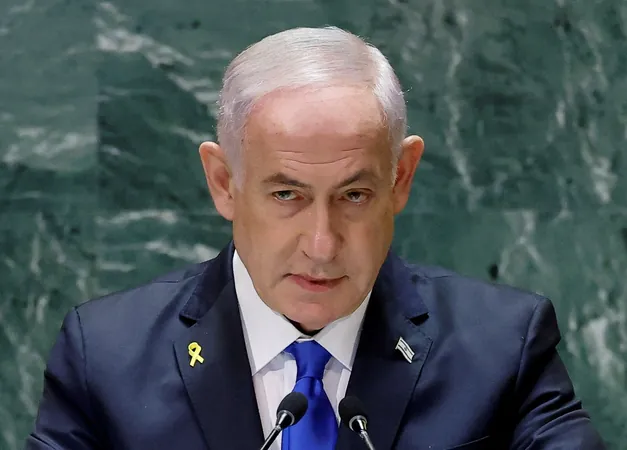
Israel Confirms Retaliation Strategy Against Iran: What It Means for Global Security
2024-10-15
Author: Ling
Introduction
In a stark response to escalating tensions, Israel has affirmed that its retaliation against Iran will be guided primarily by its 'national interests,' even as it considers the United States' perspectives. This declaration comes from Prime Minister Benjamin Netanyahu's office in the wake of a significant missile barrage launched by Iran on October 1, comprising approximately 200 missiles aimed at Israeli targets. This attack is believed to be a direct retaliation for the assassinations of key figures including Hezbollah leader Hassan Nasrallah, Iranian military commander Abbas Nilforoushan, and Hamas leader Ismail Haniyeh earlier this year.
Israel's Response to U.S. Perspectives
Netanyahu's office has emphasized, 'We listen to the opinions of the United States, but we will make our final decisions based on our national interest.' This statement reflects a nuanced position as Israel navigates the complex geopolitical landscape, particularly in light of ongoing discussions with U.S. officials, including President Joe Biden and Defense Secretary Lloyd Austin.
Strategic Considerations in Counterstrikes
Reports indicate that during a recent call with Biden, Netanyahu reassured U.S. leaders that any Israeli counterstrikes would focus on Iranian military installations while deliberately avoiding critical infrastructures like nuclear sites. This cautious approach appears to have been welcomed in Washington, where concern over a broader conflict is palpable.
Escalating Hostilities in Gaza and Lebanon
The backdrop to this situation includes over a year of escalating hostilities in Gaza, where Israeli military operations have led to a staggering death toll exceeding 42,000. Additionally, tensions have intensified along Israel's northern border with Lebanon, signalling a widening conflict that could destabilize the entire region.
U.S. Opposition to Targeting Iran's Nuclear Facilities
Biden's administration has expressed firm opposition to any attacks targeting Iran's nuclear facilities, citing fears that such actions could spiral into an uncontrollable escalation, potentially dragging the United States deeper into the conflict. To bolster Israel's defenses, the Pentagon recently announced the deployment of the Terminal High Altitude Area Defense (THAAD) system, underscoring the U.S.'s commitment to its ally amidst rising tensions.
Israeli Defense Minister's Warning
In a foreboding statement, Israeli Defense Minister Yoav Gallant has indicated that the forthcoming response to Iran's missile attack will be 'deadly, precise, and surprising.' Heavily influenced by these developments, global oil markets are on high alert, bracing for potential disruptions that an Israeli strike on Iranian oilfields could trigger, with implications for energy prices worldwide.
Conclusion
As the situation unfolds, the world watches closely—tensions remain high, the stakes are higher, and the quest for stability hangs in the balance. Will Israel's strategy lead to a narrow conflict, or escalate into something far more devastating? Only time will tell. Stay tuned for updates on this critical geopolitical issue.
 Brasil (PT)
Brasil (PT)
 Canada (EN)
Canada (EN)
 Chile (ES)
Chile (ES)
 España (ES)
España (ES)
 France (FR)
France (FR)
 Hong Kong (EN)
Hong Kong (EN)
 Italia (IT)
Italia (IT)
 日本 (JA)
日本 (JA)
 Magyarország (HU)
Magyarország (HU)
 Norge (NO)
Norge (NO)
 Polska (PL)
Polska (PL)
 Schweiz (DE)
Schweiz (DE)
 Singapore (EN)
Singapore (EN)
 Sverige (SV)
Sverige (SV)
 Suomi (FI)
Suomi (FI)
 Türkiye (TR)
Türkiye (TR)